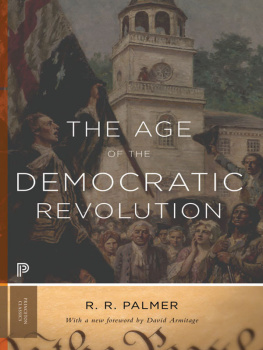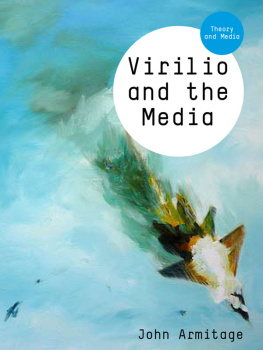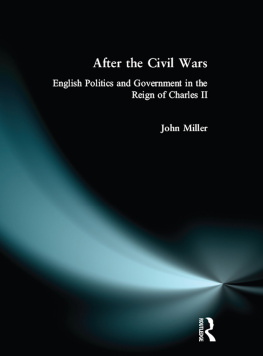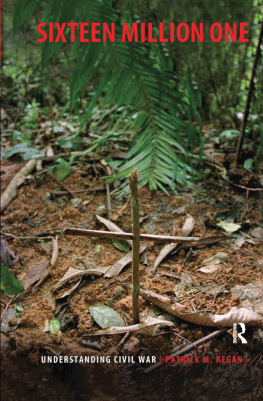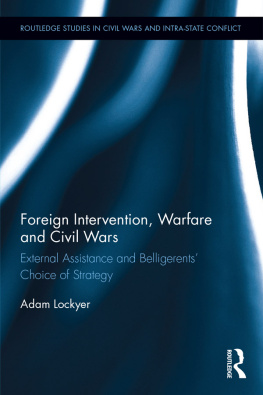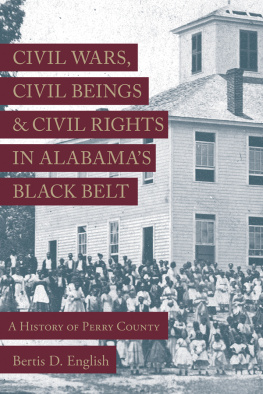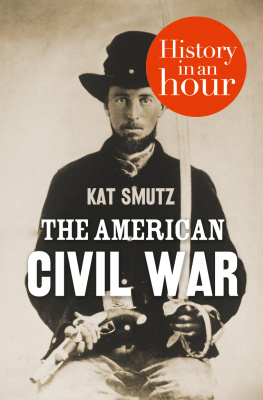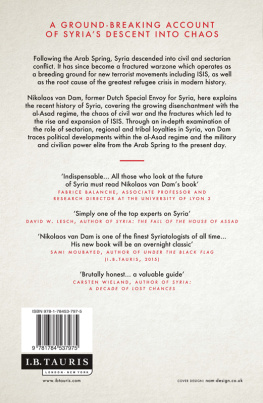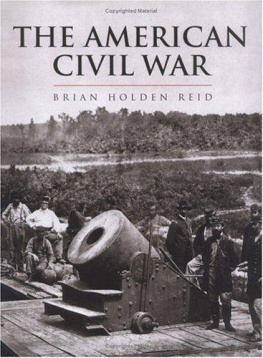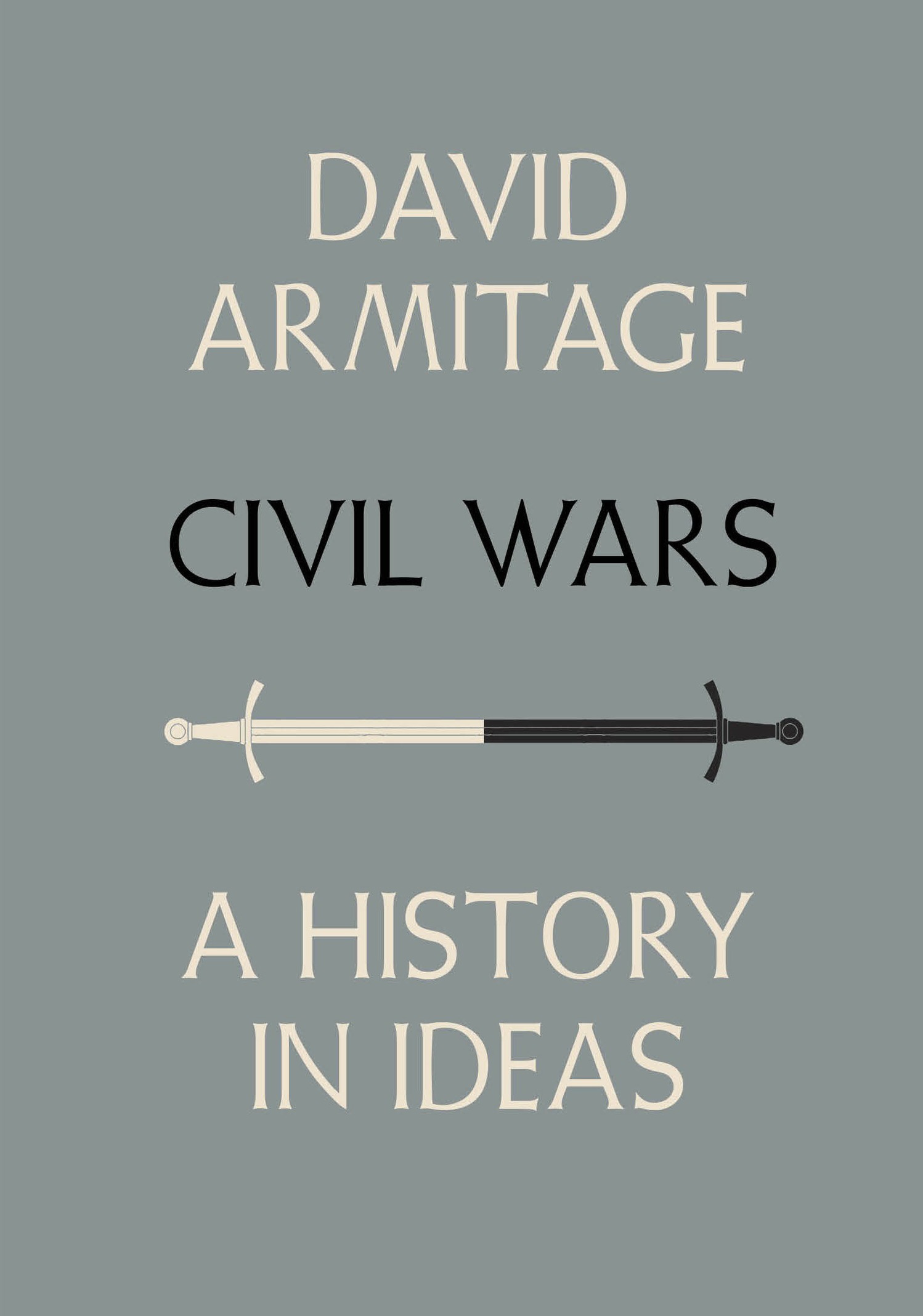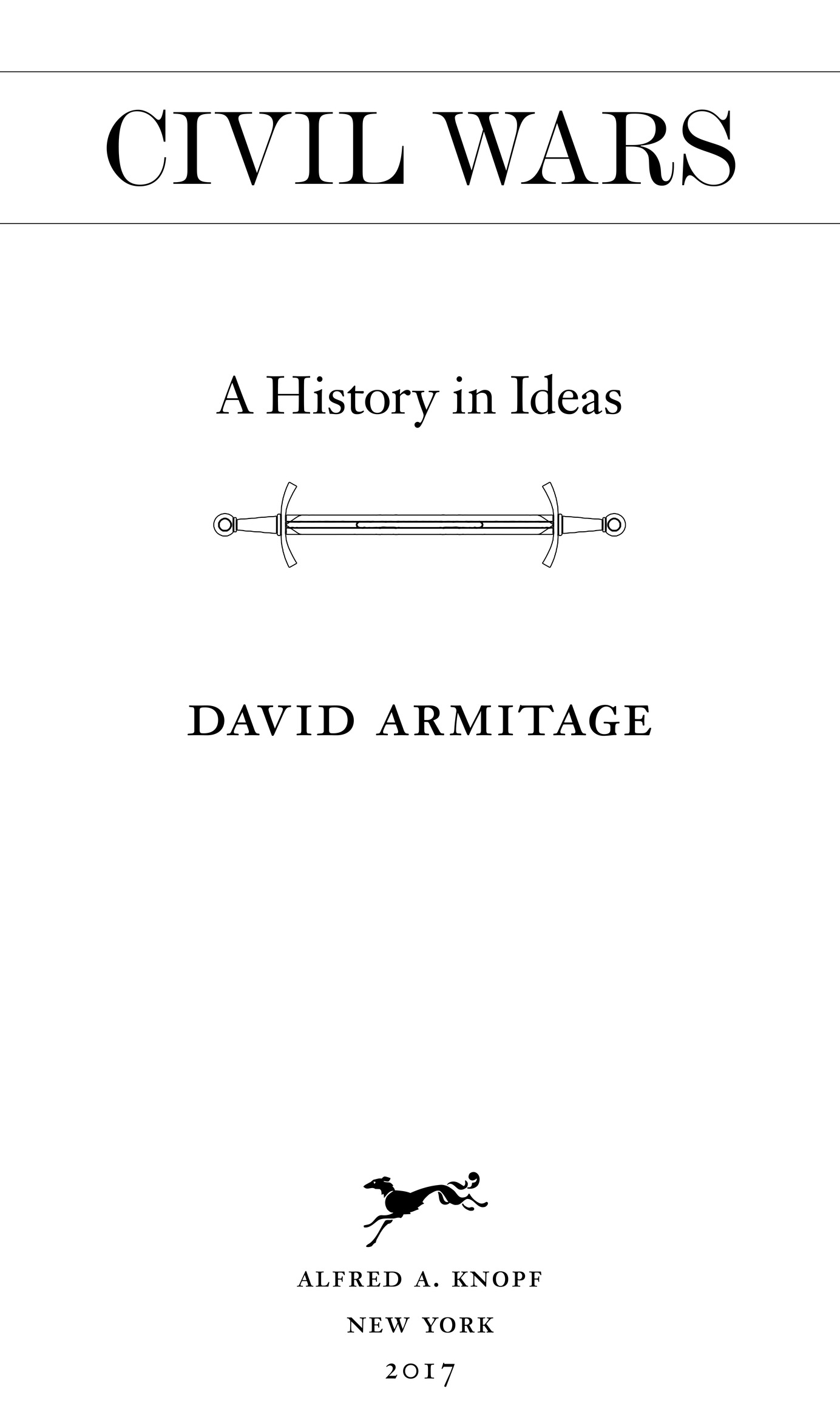ALSO BY DAVID ARMITAGE
The Ideological Origins of the British Empire
Greater Britain, 15161776 : Essays in Atlantic History
The Declaration of Independence: A Global History
Foundations of Modern International Thought
The History Manifesto
THIS IS A BORZOI BOOK
PUBLISHED BY ALFRED A. KNOPF
Copyright 2017 by David Armitage
All rights reserved. Published in the United States by Alfred A. Knopf, a division of Penguin Random House LLC, New York.
www.aaknopf.com
Knopf, Borzoi Books, and the colophon are registered trademarks of Penguin Random House LLC.
Library of Congress Cataloging-in-Publication Data
Names: Armitage, David, [1965] author.
Title: Civil wars : a history in ideas / David Armitage.
Description: First edition. | New York : Alfred A. Knopf, 2017. | Includes bibliographical references and index.
Identifiers: LCCN 2016023404 (print) | LCCN 201641142 (ebook) | ISBN 9780307271136 (hardback) | ISBN 9780385353090 (ebook)
Subjects: LCSH : Civil warPhilosophy. | Military history. | BISAC : PHILOSOPHY / Political. | HISTORY / World.
Classification: LCC JC 328.5 . A 75 2017 (print) | LCC JC 328.5 (ebook) | DDC 355.02/1809dc23
LC record available at https://lccn.loc.gov/2016023404
Ebook ISBN9780385353090
Cover design by Peter Mendelsund
v4.1
ep
Contents
In memoriam
Nicholas Henshall (19442015)
Christopher Bayly (19452015)
Civil war? What does this mean? Is there any foreign war? Is not every war between men, war between brothers?
VICTOR HUGO , Les Misrables (1862)
Whatever brotherhood human beings may be capable of has grown out of fratricide, whatever political organization men may have achieved has its origin in crime.
HANNAH ARENDT , On Revolution (1963)
Note on Conventions
Following the convention among classicists and others who study the ancient world, I have used B.C.E. (before the Common Era) and C.E. (Common Era) to describe dates otherwise written as B.C. and A.D.
In quotations from original sources, I have silently modernized some spellings for intelligibility, so that i becomes j,u becomes v, and vice versa. I have retained punctuation and italicization.
I cite Greek and Latin sources according to the conventional numbering of books, lines, and so on, found in the volumes of the Loeb Classical Library.
Translations are my own, unless otherwise specified.
INTRODUCTION
Confronting Civil War
Since 1945, Europe, North America, and countries of comparable wealth elsewhere, like Australia and Japan, have experienced what has been termed a Long Peace. Coming in the wake of World War II, this period without war between states now stands as the most enduring in modern history. Previously the calmest moments, within Europe at least, ran from the end of the Napoleonic Wars to the Crimean War (181553) and then from the Franco-Prussian War in 1871 to the beginning of World War I in 1914, but the recent international peace in the Global North has already lasted two decades more, even if overshadowed by the Cold War for much of its duration. Despite Russian intervention in Ukraine and the combustible disputes over islands in the South China Sea, the Long Peace increasingly looks as if it might expand and become all encompassing around the globe.
And yet our own age is plainly no piping time of peace. The world is still a very violent place. In 2015, there were more than forty armed conflicts in progress from Afghanistan to Yemen, not counting acts of terrorism, insurgency, or other forms of asymmetrical warfare, in which non-state forces attack states or their inhabitants. The activities first of al-Qaeda and now of Islamic State (Daesh) and its sympathizers have brought the weaponry of war onto the streets of the worlds cities, from Manhattan to Mumbai and from Sydney to Brussels. While states may, in fact, be at peace with one another, their peoples can hardly feel at ease or secure amid the effects of conflict taking place afar, where so many still know war within their own borders. The Long Peace stands under a dark shadowthe shadow of civil war.
In the early 1990s, theorists of the end of history assured us that capitalism and democracy were poised to blanket the globe, uniting all humanity in the enjoyment of flourishing trade and secure rights. Subscribers to such thinking argued for the so-called democratic peace, the view that as democracy spreads, universal peace would follow in its wake because democracies (they allege) do not go to war with one another. They built on the arguments of the philosopher Immanuel Kant (17241804), who in turn drew on the European Enlightenments long tradition of discourse on the possibility of securing lasting peace. Yet with death and destruction all around us, the peace we have feels more like that of the graveyard. And more than any other form of conflict, the one that has lately filled the graveyard is not war between states, not terrorism, but civil war.
Civil war has gradually become the most widespread, the most destructive, and the most characteristic form of organized human violence. The decades following the Cold War saw a major spike in its incidence. Since 1989, an average of twenty intrastate wars have been in progress at any momentabout ten times the annual average globally between 1816 and 1989. There have been roughly twenty-five million total battle deaths in these wars since 1945, or about half the military casualties of World War II. Even that count does not include wounded, displaced, and dead civilians, let alone all those afflicted by disease and malnutrition. The material and economic costs have been no less staggering. Hard-nosed analysts of global development have focused on the impact of war on growth, factoring in the loss of life and, consequently, of productivity, as well as the value of wasted resources, military spending, the spread of crime and disease, and the disruption of neighboring economies. The result of their calculations? The annual price tag for civil war has been about $123 billionroughly what the Global North budgets for economic aid to the Global South each year. Not without reason, then, has civil war been chillingly described as development in reverse.
Wars within states tend to last longersome four times longerthan wars between them, and in the second half of the twentieth century they have generally lasted three times as long as in the first half. These conflicts are also much more prone to recur than any others, as the most likely legacy of a civil war is further civil war; indeed, almost every civil war in the last decade was the resumption of an earlier one. It seems that civil war, like the poor, may always be with us. And so long as it is, it will generally afflict the worlds poor.
But civil war shouldnt also remain an impoverished area of inquiry. As many have noted, civil war has remained undertheorized and resistant to generalization. There is no great work titled On Civil War to stand alongside Carl von Clausewitzs On War



